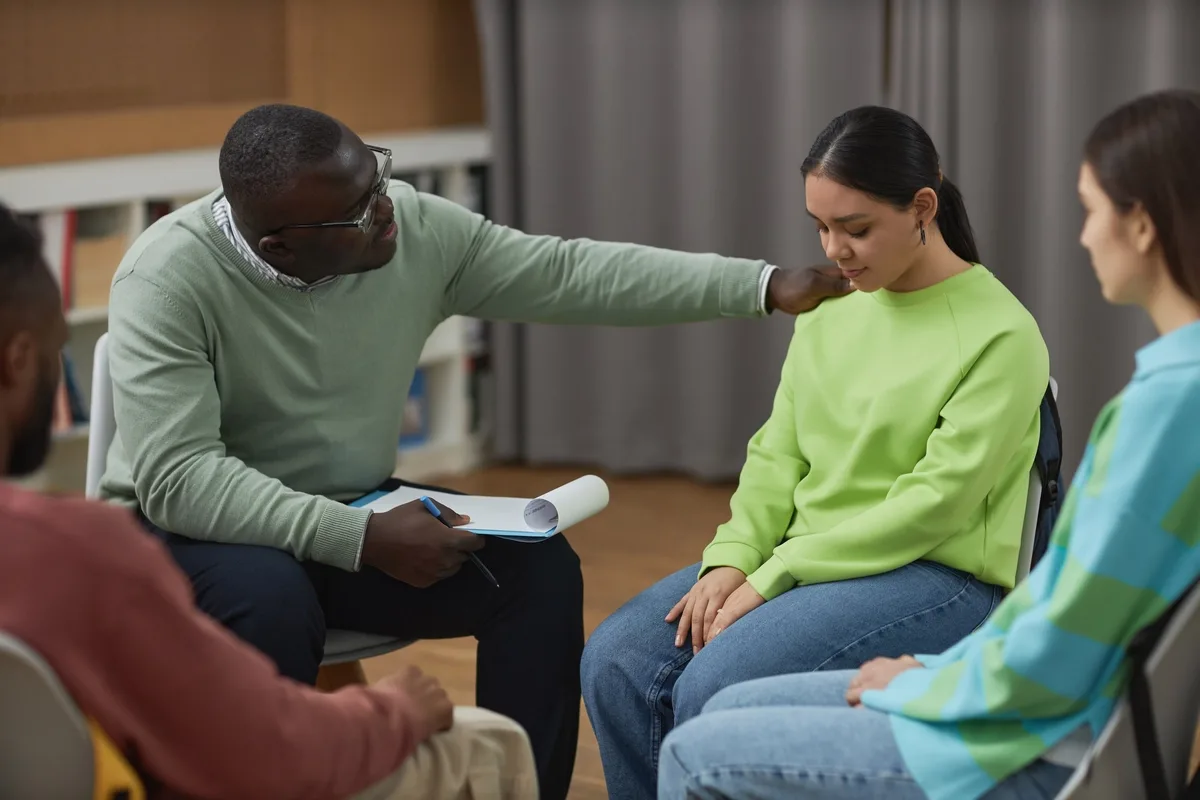24/7 Helpline:
(866) 899-111424/7 Helpline:
(866) 899-1114
Learn more about PTSD Rehab centers in Hartford City
PTSD Rehab in Other Cities

Other Insurance Options

United Health Care

Anthem

MHNNet Behavioral Health

Holman Group

Multiplan

ComPsych

Magellan Health

Sliding scale payment assistance

Oxford

Amerigroup

Evernorth

Private insurance

Premera

Lucent

Choice Care Network

BHS | Behavioral Health Systems
Beacon

Aetna

WellCare Health Plans

UMR

Grant Blackford Mental Health – Hester Hollis Concern Center
Grant Blackford Mental Health – Hester Hollis Concern Center is a dual diagnosis behavioral healthca...


















